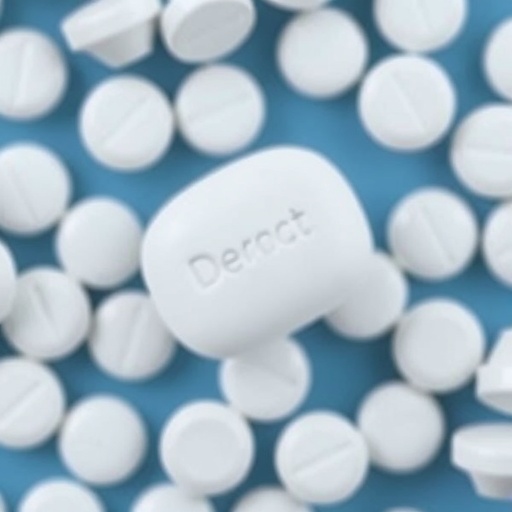In the relentless battle against depressive disorders, a groundbreaking systematic review published in BMC Psychiatry has shed light on the evolution of psychiatric medications approved by the FDA from 2009 through early 2025. This extensive analysis not only catalogs 15 newly approved antidepressants but also delves into an intriguing pipeline of 18 Phase 3 clinical trial candidates, highlighting a pivotal shift in therapeutic strategies that could redefine treatment paradigms for millions worldwide.
For decades, the monoamine hypothesis has served as the cornerstone for understanding and treating depression, focusing on neurotransmitters like serotonin, norepinephrine, and dopamine. However, this review signals a transformative era marked by a surge of medications that break from traditional mechanisms. Notably, emerging drugs target glutamatergic NMDA receptors, GABA-A receptors, and kappa-opioid receptors—complex systems implicated in mood regulation and neuroplasticity, offering fresh hope for patients resistant to conventional therapies.
The authors meticulously mined the FDA Label Database using stringent criteria to identify drugs explicitly indicated for depressive disorders, narrowing their search to human prescription drugs with New Drug Applications linked to major depressive disorder. This robust approach ensured an authoritative inventory reflecting the latest clinical advancements. Concurrently, the US Clinical Trials Registry was scoured for innovative compounds in Phase 3 trials, capturing the frontier of experimental pharmacotherapy and unveiling the future landscape of antidepressant options.
Among the factors that stand out in this comprehensive review is the advent of medications functioning as partial agonists at the 5-HT1A receptor. This receptor subtype modulates serotonin signaling in a nuanced manner, potentially offering antidepressant effects with reduced side effects compared to full agonists or reuptake inhibitors. Coupled with the persistent presence of serotonin-norepinephrine reuptake inhibitors and repurposed neuroleptic agents, the spectrum of antidepressants now embodies diverse pharmacodynamics, signaling a nuanced understanding of depression’s multifactorial etiology.
A remarkable feature of the FDA-approved antidepressants in this timeframe is their once-daily oral dosing regimen, representing a significant advance in patient compliance and quality of life. This standardization aligns with contemporary needs for simplified treatment protocols, which are crucial for maintaining adherence in chronic mental health conditions. The review underscores that enhanced usability may translate into better clinical outcomes, a crucial consideration given the high rates of relapse and treatment resistance in depressive disorders.
The pipeline of Phase 3 medications illuminates further innovation, with several candidates embodying novel modes of administration and unique side effect profiles. These investigational drugs promise to broaden therapeutic avenues, incorporating non-traditional targets such as glutamate and opioid systems that were previously underexplored in depression treatment. Such diversification is expected to confront the heterogeneous nature of depressive illnesses, potentially enabling personalized medicine approaches tailored to individual neurobiological signatures.
Moreover, the strategic pivot towards glutamatergic modulation, especially NMDA receptor antagonism, reflects a growing body of research indicating rapid antidepressant effects distinct from those achieved by monoamine-based therapies. These rapid-acting agents, some already FDA-approved within this review period, challenge existing dogmas and offer real hope for faster relief from debilitating depressive symptoms, a game-changer in psychiatric care’s therapeutic arsenal.
Parallel advancements targeting GABA-A receptors add another layer of complexity and opportunity. By influencing inhibitory neurotransmission, these drugs may rectify imbalances in neural circuits implicated in mood regulation, anxiety, and stress responsiveness. The review’s findings suggest that combining different neurochemical strategies could yield synergistic benefits, enhancing efficacy while mitigating adverse effects inherent to monotherapy regimens.
Interestingly, partial agonism at the kappa-opioid receptor represents an emerging frontier uniquely highlighted in this review. Kappa-opioid receptor antagonists have been associated with mood elevation and anti-anxiety properties, potentially circumventing the addictive risks of traditional opioid therapies. This novel mechanism exemplifies the creative pharmaceutical innovation sought in addressing depressive disorders, moving beyond symptomatic relief towards mechanistic precision.
The systematic review’s authors emphasize the importance of integrating clinical trial data, pharmacodynamic insights, and post-marketing surveillance to form a coherent picture of this evolving therapeutic landscape. Such holistic scrutiny is indispensable in validating efficacy, safety, and tolerability, particularly as novel agents frequently carry uncharted side effect profiles and drug interaction risks.
In conclusion, this extensive review articulates a compelling narrative of progress in psychiatric medication development for depressive disorders. By transcending the old paradigms centered solely on monoamines, the research illustrates how innovative mechanisms, improved dosing convenience, and advanced clinical trial processes collectively drive the future of depression treatment. The vast array of pipeline medications poised to enter the market heralds a new epoch of hope and complexity in mental health care.
Subject of Research:
Systematic review of FDA-approved psychiatric medications for depressive disorders from 2009 to early 2025 and analysis of Phase 3 pipeline drugs.
Article Title:
Depressive disorders: systematic review of approved psychiatric medications (2009-April 2025) and pipeline phase 3 medications.
Article References:
IsHak, W.W., Hirsch, D., Renteria, S. et al. Depressive disorders: systematic review of approved psychiatric medications (2009-April 2025) and pipeline phase 3 medications. BMC Psychiatry 25, 939 (2025). https://doi.org/10.1186/s12888-025-07141-3
Image Credits: AI Generated
DOI:
https://doi.org/10.1186/s12888-025-07141-3




